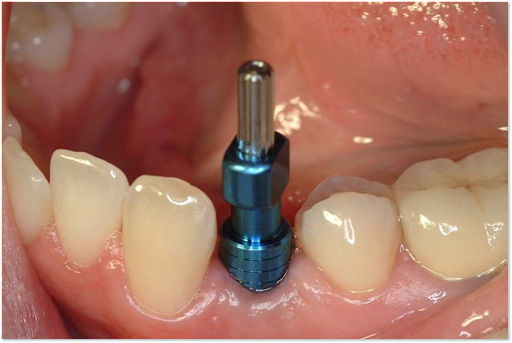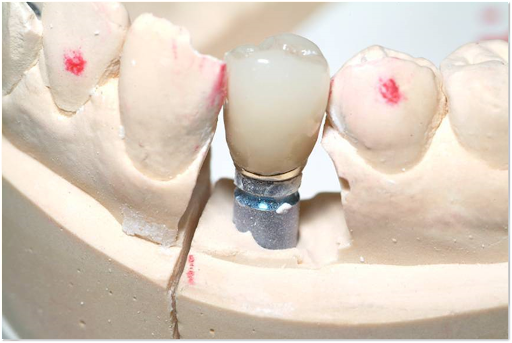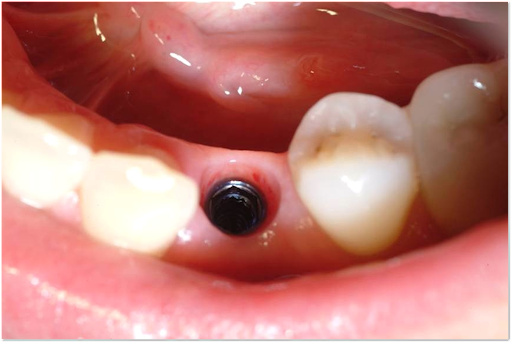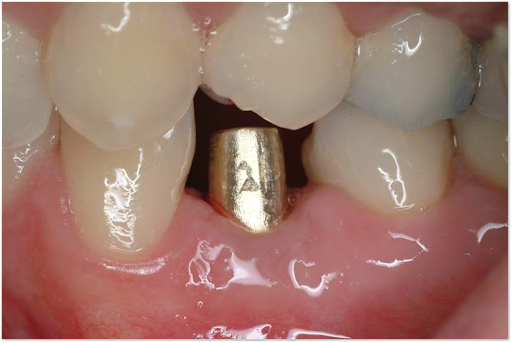KEY PLAYERS OF THE IMPLANT TEAMThe implant team is made up of at least seven members: the patient, doctor, assistant, hygienist, implant company representative, laboratory technician, and the front desk. Each holds 1/7 of the responsibility for the case. Patient’s Responsibilities Patients are responsible for their own health, recognizing when they have a problem, and understanding the need for treatment. It’s important that are truthful and express their concerns clearly to their physicians to get the optimum treatment plan that suits them and their needs. Additionally, their consent is the most vital aspect of the implementation process. Without consent, treatment is not possible. Furthermore, while it’s wrong to diagnose the patient’s wallet or to allow insurance to dictate treatment, patients are responsible for paying for the treatment they receive. Lastly, they’re responsible for the maintenance and upkeep of the restorations after the completion. Doctor’s Responsibilities The doctor has the responsibility of educating the patient as to the benefits of dental implant treatment and about the need for treatment and alternative treatments including the option of no treatment, and its consequences. Doctors will prescribe the appropriate treatment plan, make the necessary referral to the surgeon for evaluation, and set the fees. Different types of doctors have different duties. The restorative doctor is in charge of providing a wax-up and implant surgical guide, while the surgical doctor discusses diagnostic needs with the restorative doctor so that communication does not break down. However, both must work together throughout all phases of treatment and must work together toward the common restorative goal. Assistant’s Responsibilities A major part of the assistant’s role is to understand all phases of implant treatment, be able to discuss them with patients, and educate the patient on the need for treatment. In addition, they have to be prepared for treatment and have a knowledge of implant procedures, including knowing when to use what type of impression copings, having the torque driver ready, etc. Having knowledge of implant components is essential and assistants should attend lunch-and-learns or the like with the implant representative. Lastly, they are also responsible for tracking and following cases. Laboratory Technician’s Responsibilities The laboratory technician’s job is to fabricate and maintain the restoration, doing so with the precision necessary to prevent complications such as screw loosening, breakage, or implant failure. It’s imperative they follow the prescription, understand the desires of the patient, and accurately create a successful restoration. Implant Company Representative’s Responsibilities The representative of the Implant Company must be involved with case planning and train the restorative staff in implant components and procedures. Conducting product demonstrations is common to ensure proper technique and usage. The Front Desk Like many of the other key players, the staff of the front desk has to be knowledgeable and educate the patient as well. Moreover, they are responsible for scheduling appointments, tracking and following cases, presenting fees, making financial arrangements, assisting in securing financial aid, and dealing with insurance issues. The Hygiene Department Members of the Hygiene Department also have the duty of emphasizing and educating on the importance of implant restorations. However, they’re also responsible for maintaining the restorations and teaching the patient how to properly maintain them too. Any further treatment is discussed between the hygiene team and patients. Tracking and following cases is also under their duties. Treatment Coordinator Treatment coordinators have to be present at the treatment plan appointment and consultation appointment. Their most important tasks are tracking and following cases, coordinating between n the restorative and surgical offices, following up with patients to be sure they have seen the appropriate specialists, and answering questions regarding the treatment. COMMUNICATION WITHIN THE IMPLANT TEAMClear and concise communication is vital when it comes to any kind of medical treatment process and there’s no difference for implant cases either. The sequencing of communication between the patient and staff presents as such:
Dental Labs in My AreaLooking for dental labs near me? Our business is full-service and we specialize in implant dental services. The Dental Lab is a leading dental implant dental lab in the United States. We deliver all over the nation with our fast and reliable shipping services, making us a dental laboratory near you--no matter where you are. With over 35 years of experience plus Al’s expertise, The Dental Lab is a powerhouse for restorative products and services. Call us today to learn more information at 215-293-9760. Sources: An Introduction to Dental Implants Keywords:
The Dental Lab, dental labs in my area, dental labs near me, dental lab, dental labs, dental laboratory near me, restorations, lab, dental implants, implant surgery, oral surgery, implant surgical guide, dental surgical guide, surgical guide, surgical guide for dental implant, surgical guide implant
0 Comments
Leave a Reply. |



